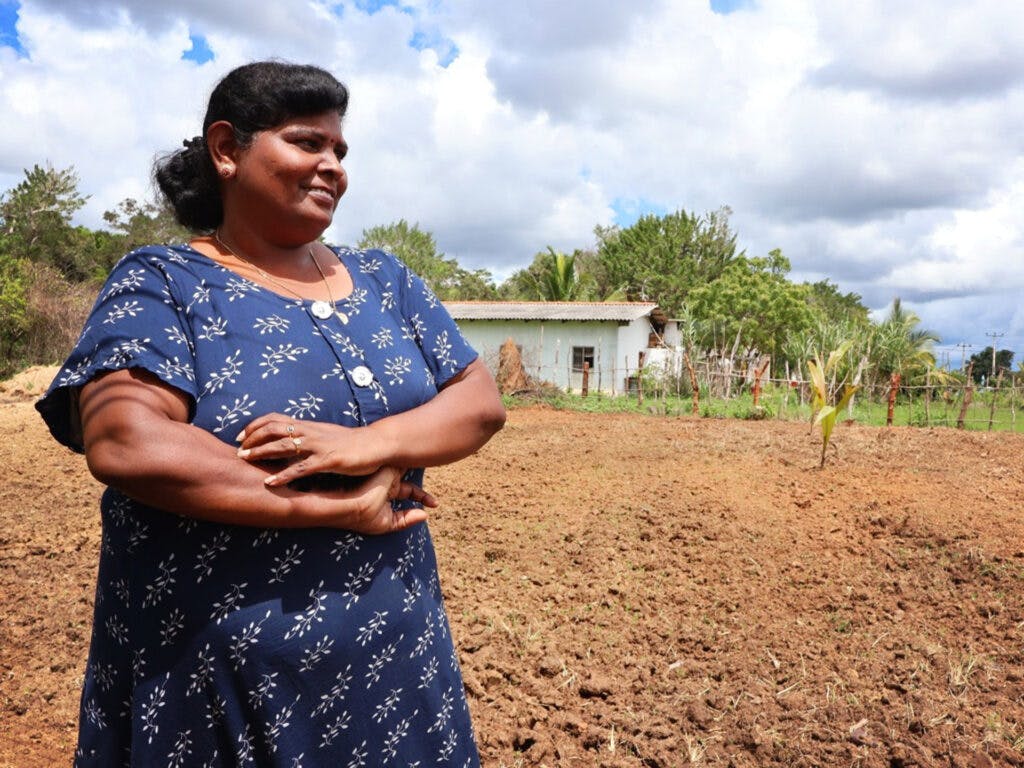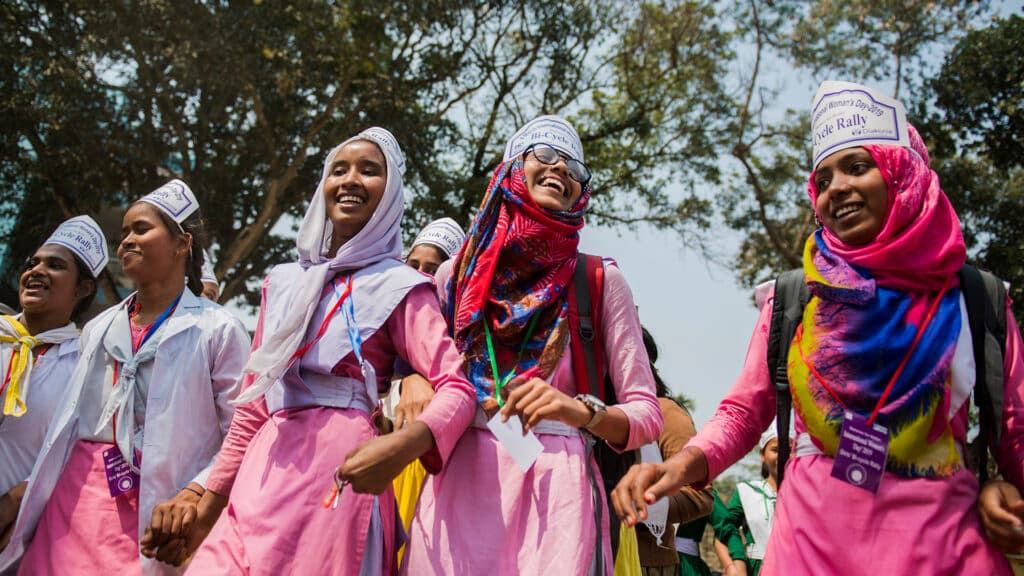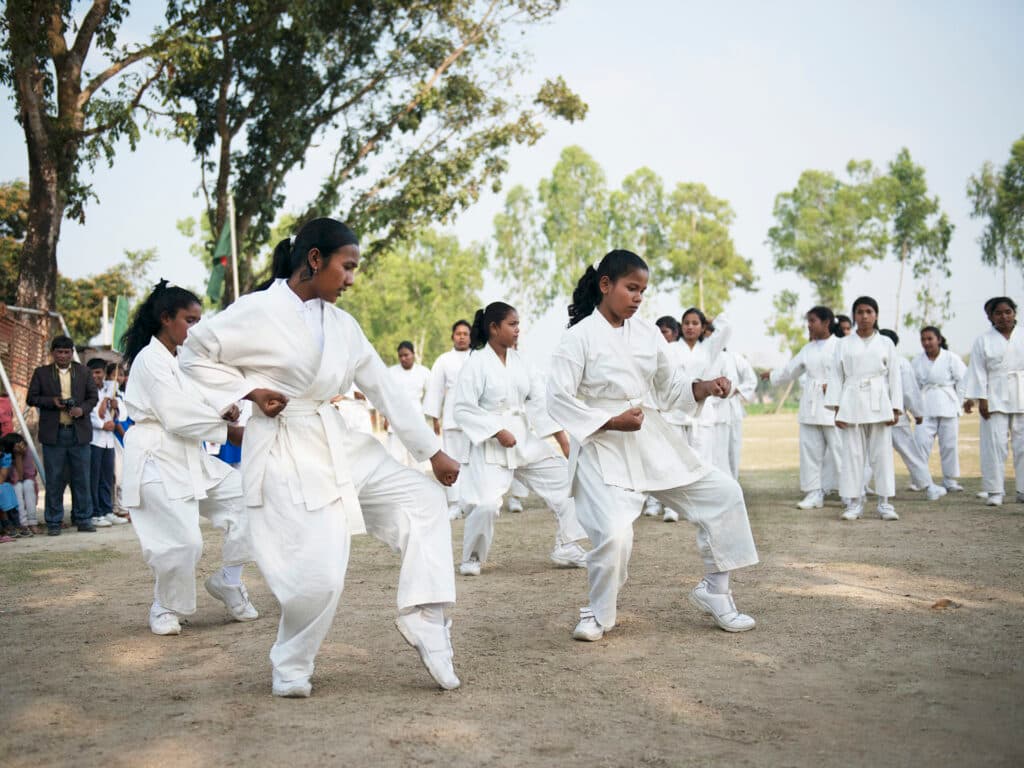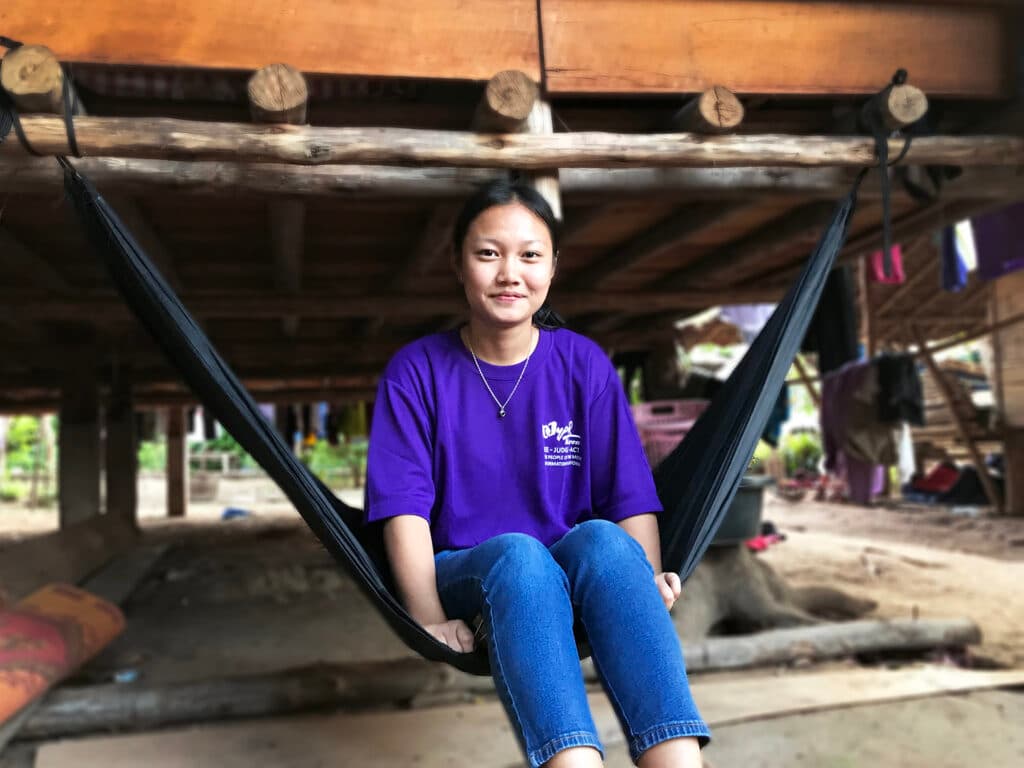
Sri Lanka
Diakonia Sri Lanka is dedicated to systematically challenging patriarchal structures at grassroots and decision-making levels, advocating for democratic processes, promoting environmental initiatives, and lobbying for policy-level changes. Through our multifaceted approach, we aim to dismantle unfair power dynamics, ensure transparent and accountable governance, address urgent environmental challenges such as climate change and biodiversity loss promote pluralism and advocate for gender justice.
For almost three decades Sri Lanka was ravaged by a bitter civil war between the separatist group, Liberation Tigers of Tamil Eelam (LTTE), and the government. Finally, in 2009, the war ended, and a large number of civilians were killed and/or displaced. Accusations of abuse by both sides persist to this day.
Post war, the Sri Lankan government focused on economic and infrastructure development, which has enabled Sri Lanka to achieve the status of a lower middle-income country. However, the root causes of the conflict remain unresolved, highlighting an urgent need for accountability and reconciliation. Shifting political agendas across successive governments have contributed to instability, culminating in the economic collapse of 2022. In response, Sri Lanka partnered with the International Monetary Fund (IMF) in 2023, adopting the Extended Fund Facility (EFF) to restore long-term economic stability. While intended to aid recovery, this approach has brought significant challenges to the country’s political and civic climate. The IMF's recommended reforms include fiscal austerity, debt restructuring, tax increases, resulting in societal unrest.
Sri Lanka is known for its ethnic, religious, and linguistic diversity. However, decades of war, followed by the 2019 Easter Sunday attacks, have deepened divisions among communities and caused polarization among various ethnic groups. The lasting effects of conflict and insecurity continue to shape interethnic relations, emphasizing the need for greater social cohesion.
While women's literacy rates in Sri Lanka are high, their involvement in the workforce remains low. Women face economic disadvantages, including the gender pay gap, and they dominate the workforce in low-income, informal jobs. In politics, women's representation in Parliament has only recently increased from 5.3% in 2019 to 9.7% in 2024, despite the historic success of electing Sirimavo Bandaranaike, the world's first female Prime Minister in the 1960s.
Gender-based violence is another major issue in Sri Lanka, with one out of every three women experiencing physical or sexual assault at some point in her life. Although maternal health has improved, women's sexual and reproductive health continue to face additional hurdles, as access to services and support remains limited due to cultural norms that discourage open discussions on sexual and reproductive health issues.
Our work
Diakonia Sri Lanka and our partners are working towards systematically challenging patriarchal structures at grassroots and national decision-making through multifaceted approaches that mainstream concepts of conflict sensitivity, gender equality and environment. Our main aim is to dismantle unfair power dynamics, ensure transparent and accountable governance in responding to climate change and biodiversity loss; economically empower women through livelihood initiatives and investing in youth to face the future. The holistic approach reflects our steadfast commitment to creating a more inclusive, resilient and equitable world for all.
Thematically our work invests in contributing to social and economic justice, democracy and good governance, gender equality, peace building, climate adaptation and resilience.
Sri Lanka is prone to natural disasters such as floods, landslides, cyclones, tsunamis and droughts. Disaster mitigation forms part of the ongoing programmes, and we build on our work when providing humanitarian support to affected rights holders in disaster situations.
Diakonia's work makes a difference
Despite ongoing post-war challenges, when Sri Lanka was hit by Easter Sunday bombings in 2019, extremist groups attempted to sow division and hatred. Diakonia-supported women's organizations quickly united across boundaries, engaging with religious leaders, youth and children from all faiths to counter division and promote unity and humanity.
In response to government restrictions on fundamental freedoms, Diakonia and its partner organizations have sought legal redress to hold those in power accountable. Through informal and formal networks, we disseminate critical information on human rights, land rights, environmental protection, democracy, and indigenous rights, helping citizens stay informed and advocate effectively.
Diakonia's collaborative efforts with partners have improved livelihood options for women but also empowered women to take leadership roles benefiting many. Strategic support systems for gender-based violence survivors have helped 400 women during recent crises, with 129 taking legal action including 236 cases at local Quazi courts, a notable departure from a culture of silence. Through continued advocacy work, women's representation in municipal bodies increased from 3% to 23% in 2018, and in parliament from 5.3% to 9.7% by 2024 after mentoring over 2,200 women in political leadership.
For more information
Dilshan Hettiarachchi, Country Director Sri Lanka
Phone: +94 (0) 112822769

Stitching Lives with a Needle and Thread
Forty-year-old Farwin, a happily married woman and accomplished tailor from Kalmunai, shared her journey of self-discovery through the activities of the Muslim Women’s Research and Action Forum (MWRAF) in collaboration with Diakonia, and how it enabled her to help others along the way.

Women’s Resilience in Sri Lanka Post-War
In the aftermath of Sri Lanka’s devastating civil war (1983-2009), communities in the northern regions faced unprecedented challenges of rebuilding their lives and social structures. Women, in particular, bore the burden of rebuilding their lives while confronting deeply rooted gender inequalities.

Rebuilding Coexistence with Traditional Wisdom
Ethnic tensions have shaped Sri Lanka’s history, resulting to a 26-year civil war that ended just over a decade ago. Now, the Muslim Women’s Research and Action Forum (MWRAF) is utilizing the power of traditional storytelling to bridge communities and revive a once-thriving culture of coexistence. This innovative approach, developed in partnership with Diakonia, demonstrates how age-old wisdom can tackle modern challenges of social division.

Ayesha’s Fight for Fair Microfinance System
The sun rises over Rathmalyaya as Ayesha starts her day, no longer just a volunteer at a local medical clinic but now a celebrated community advocate. Her recent victory against unfair microfinance practices has changed lives across Sri Lanka.

How One Woman Changed Her World
Have you ever wondered what it takes to change your life’s direction against all odds? Lucia, a 46-year-old female farmer from Vavuniya, Sri Lanka, has an inspiring answer. In a region healing from the scars of civil war, Lucia’s journey from a struggling woman headed household to a community leader shows the power of knowledge, solidarity, and advocacy. Supporting her in this transformation are Diakonia and the Law and Society Trust (LST), working hand in hand to facilitate change.
Women-led groups build capacity
The Gender and Resilience project was created as a response to Diakonia’s ambition to strengthen its work on disaster risk reduction and to bridge the
humanitarian and development work. The vision of the project was to contribute to gender equality and resilient communities through disaster risk reduction innovation projects.
Sri Lanka developed an innovative project working with women’s empowerment and community based disaster risk reduction with the possibility to replicate it across the region.



